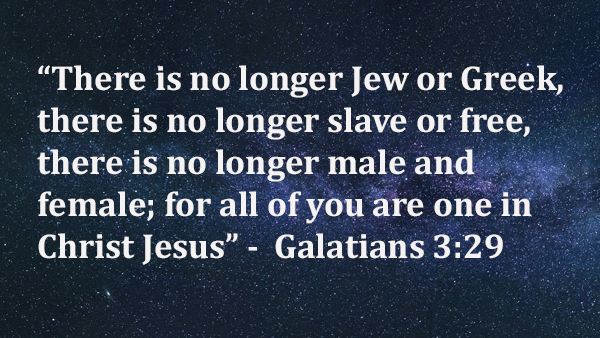We will be reading Galatians as the Epistle on June 22, 29 and July 6. Here is some background to Paul’s letter.

In the face of Jewish opposition, the southern region of Galatia had been fertile soil for Paul’s ministry as he traveled with his companion, Barnabas, through cities recorded by Luke in Acts 13 and 14 . However, after Paul left the area of Galatia he received news that some trouble-makers were agitating the believers . Although Paul was not completely sure of the identity of his opponents (Galatians 5:10), apparently a group of Jewish Christians, or possibly local Jews, were teaching that submission to the Jewish law was a requirement of salvation. Paul’s letter to the Galatians was a result of the challenges the Galatians were facing, but also reflected a continuing debate regarding the applicability of the Torah in Jerusalem and Antioch in Syria.
Paul’s opponents viewed adherance to the law as an integral part of maintaining and, likely, procuring a relationship with God . In order to further their agenda, the agitators attempted to undermine Paul’s authority, claim Paul’s gospel was not true, and charge that the gospel preached by Paul would lead to immorality. Paul addressed the issues of the law with various arguments.
The crucial language utilized by Paul arguing for the sufficiency of the Christian faith climaxes with “I have been crucified with Christ; and it is no longer I who live, but Christ lives in me” (Galatians 5:20) which naturally leads to the recognition that righteousness, which the Jewish Christians were attempting to accomplish through the futility of human effort, can only be realized by grace via faith. In other words, “Christ in me” imputes righteousness not the Law, otherwise, “Christ died needlessly” (Galatians 5:21-3:2).
Longenecker in the book The Cambridge Companion to St Paul identifies four significant Pauline points which decimate the opponent’s gospel which, of course, is no gospel at all (Galatians 1:6-7):
1 Morality –Paul emphasizes that a morality is central to a life with Christ. This righteousness frees believers from the need to acquire significance or justification from immoral idolatries such as human performance by realizing the very thing we are striving for already exists.
2 The Law -Paul explains the entirety of the Law is fulfilled in one word: “Love your neighbor as yourself” (Galatians 5:14). In other words, through “service to others the expectations of the law are fully concretized in unrivalled fashion.” Self-giving is magnified completely fulfilling the Law in an unbridled extension of love for others.
3. Walk in the Spirit. Paul refers metaphorically to the purpose of the law as pedagogue (Galatians 3:24) which is “relieved of its duty once the child comes of age,” just as the function of the law terminated with Christ’s arrival Accordingly, Paul now directs us to “walk by the Spirit” not by the Law, for if led by the Spirit, we are not under the Law (Galatians 5:16-17).
4. Finally, Paul plunges a dagger into the motivation of his opponents by accusing them of championing teaching of the law for the purpose of self-promotion Galatians 4:17).






 Beginning on Pentecost 2, we enter the Church year known as Ordinary Time. After Easter, Jesus’s ascension into heaven, and the coming of the Holy Spirit to us at Pentecost, we accept responsibility for being and becoming Christ’s body in the world. We are called by Jesus to live in community, our lives together guided not only by the example of Jesus, but by the guidance of the Holy Spirit.
Beginning on Pentecost 2, we enter the Church year known as Ordinary Time. After Easter, Jesus’s ascension into heaven, and the coming of the Holy Spirit to us at Pentecost, we accept responsibility for being and becoming Christ’s body in the world. We are called by Jesus to live in community, our lives together guided not only by the example of Jesus, but by the guidance of the Holy Spirit. 
 Pentecost 2
Pentecost 2